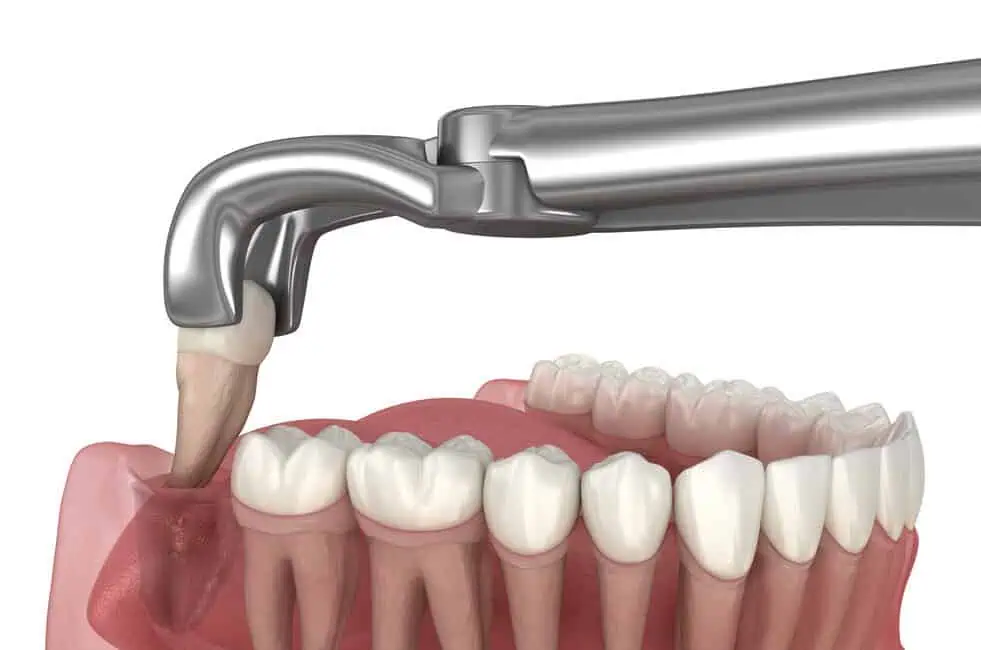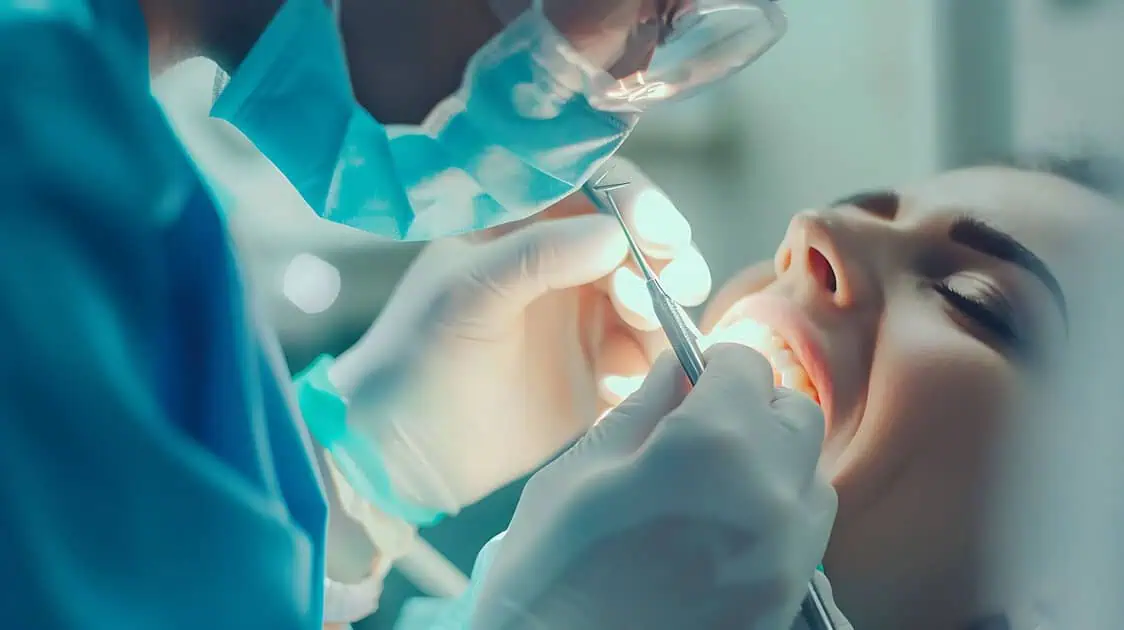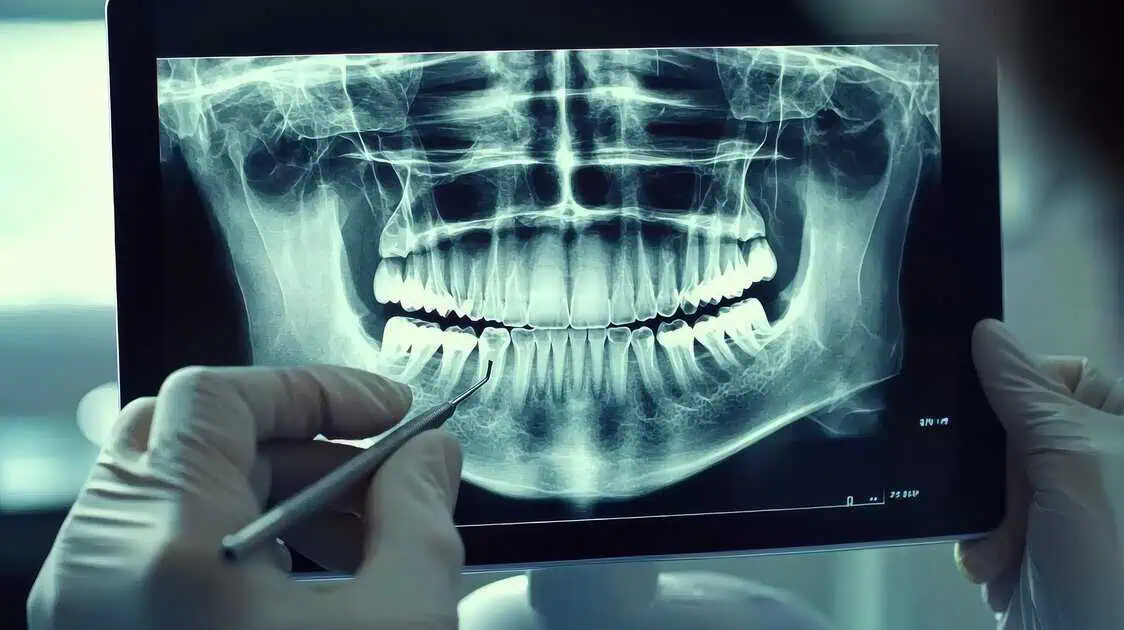Table of Contents
When should you choose extraction over a root canal for a problematic tooth? This straightforward guide focuses specifically on wisdom teeth extraction timing – a decision that eliminates the root canal versus extraction dilemma for these particular molars.
The following sections will help you understand the optimal age for wisdom tooth removal, identify key warning signs that extraction is necessary, and outline what to expect during the procedure and recovery.
For Phoenix residents, we’ll also detail the specialized wisdom tooth extraction services available at 24th Street Dental Biltmore.
What is Wisdom Tooth Extraction?
Wisdom tooth extraction in phoenix, AZ is a standard dental procedure to remove one or more wisdom teeth—the third set of molars at the back of your mouth. These teeth often become impacted or grow at an improper angle, leading to pain, infections, and misalignment of surrounding teeth.
During the procedure, the area around the tooth is made numb to ensure you feel no pain. Then, the tooth is carefully removed using specialized tools. In some cases, we might need to make a small cut in the gum or remove some surrounding bone to make the extraction easier.
Explaining Wisdom Teeth and Why They Are Often Removed
Wisdom teeth, or third molars, typically emerge between ages 17-25. These final additions to your dental lineup can be perfectly healthy additions to your mouth but frequently cause problems due to limited space in the modern human jaw.
Wisdom tooth removal becomes necessary when these late-blooming molars cause pain, infection, damage to adjacent teeth, or other complications. Understanding the right timing for extraction can help prevent unnecessary discomfort and more serious dental issues.
The Ideal Age Range for Wisdom Teeth Removal
The Sweet Spot: Ages 17-25
Dental professionals generally agree that the best age for wisdom tooth extraction is between 17 and 25 years. There are several compelling reasons for this recommendation:
- Root Development: During this period, wisdom teeth roots are not fully formed, making extraction less complicated.
- Bone Flexibility: Younger patients have less dense jawbones, allowing for easier removal with minimal trauma.
- Healing Capacity: Younger individuals typically heal more quickly and experience fewer complications.
- Preventative Approach: Early removal can prevent future complications like impaction, infection, or damage to adjacent teeth.
According to research, wisdom teeth extracted at this age range lead to a smoother experience overall. In fact, the procedures for these patients are often short and less complex. This means they experience faster recovery times and lower risk of complications.
Adolescence (Before Age 17)
Some orthodontists may recommend evaluation as early as 16, especially in certain cases. This is often advised if X-ray results reveal a potential for impaction. It also applies if the patient is currently undergoing orthodontic treatment or if early complications are already detected.
However, extraction before age 17 is less common unless specific issues are present.
Adults (Over 25)
While the ideal window might be earlier, many adults have their wisdom tooth extraction in their late 20s, 30s, or beyond. Extraction at an older age typically involves:
- More complex surgical procedures
- Longer recovery periods
- Higher risk of complications
- More discomfort during recovery
That said, if wisdom teeth aren’t causing problems, they can potentially remain in place indefinitely, regardless of age.
Key Factors That Influence Extraction Timing
The decision about when to remove wisdom teeth depends on several factors beyond just age:
1. Symptoms and Pain
Persistent pain, swelling, or infection around wisdom teeth may indicate immediate removal is necessary, regardless of age. Common symptoms include:
- Jaw pain or stiffness
- Swollen, tender, or bleeding gums
- Recurring infections
- Bad breath or unpleasant taste
- Difficulty opening the mouth
2. Tooth Position and Impaction
The position of wisdom teeth significantly affects the decision to extract:
- Fully Erupted and Functional: If wisdom teeth have fully emerged, are properly aligned, and can be effectively cleaned, removal might not be necessary.
- Partially Erupted: These teeth create a passage for bacteria to enter around the tooth, potentially causing infection, pain, and swelling.
- Impacted wisdom teeth: When wisdom teeth are trapped beneath the gum line due to insufficient space, they can:
- Grow at an angle toward adjacent teeth
- Grow at an angle toward the back of the mouth
- Grow horizontally within the jawbone
- Develop vertically but remain trapped within the jawbone
3. Potential for Future Problems
Even asymptomatic wisdom teeth might be recommended for removal if:
- They’re difficult to clean due to their position
- They could potentially damage adjacent teeth
- They might contribute to overcrowding
- X-rays show potential for future complications
Signs It’s Time for Wisdom Teeth Removal
Consider wisdom tooth extraction if you experience:
- Pain and Discomfort: Persistent pain at the back of the mouth is the most common indicator.
- Infection or Gum Disease: Redness, swelling, tenderness, or drainage around wisdom teeth.
- Cysts or Tumors: Though rare, cysts can develop around untreated wisdom teeth.
- Damage to Adjacent Teeth: Crowding or damage to second molars.
- Sinus Issues: Upper wisdom teeth can cause sinus pain, pressure, or congestion.
- Difficulty Opening Mouth: Restricted jaw opening associated with wisdom teeth.
- Orthodontic Considerations: To prevent newly straightened teeth from shifting.
The Consultation Process
Before any wisdom tooth removal, you should expect:
- Comprehensive Examination: Visual inspection of the mouth and surrounding tissues.
- Imaging: Panoramic X-rays or 3D imaging to visualize the position of wisdom teeth.
- Discussion of Options: Review of the necessity for extraction and timing considerations.
- Medical History Review: Assessment of factors that might affect surgery or recovery.
- Anesthesia Options: Discussion of local anesthesia, sedation, or general anesthesia based on case complexity.
Recovery Expectations Based on Age
Recovery experiences typically vary by age:
Teens and Young Adults
- Generally faster healing time (3-5 days)
- Less post-operative pain
- Lower risk of complications
- Quicker return to normal activities
Older Adults
- Longer recovery period (potentially 7-10 days)
- More post-operative discomfort
- Higher risk of complications like dry socket
- More time needed before returning to regular activities
Wisdom Tooth Extraction in Phoenix, AZ at 24th Street Dental Biltmore
At 24th Street Dental Biltmore, we understand that wisdom tooth extraction can cause anxiety for many patients. That’s why we’ve developed a patient-centered approach that prioritizes your comfort and wellbeing throughout the entire process. Our services include:
- IV Sedation for maximum comfort: We offer various sedation options to ensure your procedure is pain-free and as comfortable as possible.
- PRF/PRP therapy for accelerated healing: We utilize advanced Platelet-Rich Fibrin and Platelet-Rich Plasma therapies to speed up your recovery process and minimize post-operative discomfort.
- Customized treatment plans: At 24th Street Dental Biltmore,We recognize that every patient is unique. Our team develops personalized extraction plans based on your specific dental structure and needs.
- Advanced extraction techniques: Our experienced team employs the latest techniques and technology to make your wisdom tooth removal as minimally invasive as possible.
Unsure about wisdom tooth removal? Get a personalized assessment today!
Frequently Asked Questions
At what age should I consider getting my wisdom teeth removed?
The optimal window for wisdom tooth extraction is typically between ages 17-25 when roots aren’t fully developed, making the procedure less complicated and recovery faster.
How can I tell if my wisdom teeth need to be removed?
Pain, swelling, infection, difficulty opening your mouth, damage to adjacent teeth, or x-rays showing impacted growth patterns are all indicators that wisdom tooth extraction may be necessary.
Is wisdom tooth removal more difficult for older adults?
Wisdom tooth extraction becomes more challenging with age due to fully formed roots, denser jawbone, slower healing capacity, and increased risk of complications.
What sedation options are available for wisdom tooth extraction at 24th Street Dental Biltmore?
24th Street Dental Biltmore offers IV sedation for maximum comfort during wisdom tooth extraction, ensuring a pain-free and anxiety-free experience for all patients.
How long is the typical recovery period after wisdom tooth extraction?
Recovery from wisdom tooth removal typically takes 3-5 days for younger patients and 7-10 days for older adults, though individual healing times may vary based on the complexity of the extraction and your body’s natural healing capacity.







